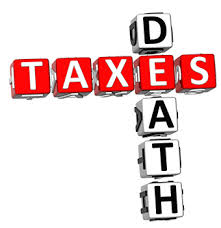On March 25th, 2025, President Donald Trump issued Executive Order 4247 (“EO 4247“) directing the U.S. Department of the Treasury to transition all federal disbursements and collections into electronic format; effectively ending the use of paper cheques. By September 30th, 2025, paper cheques for federal payments (notably tax refunds and…
Category: US Taxes
In Canada, it is not uncommon for employers to grant stock options to employees as a form of compensation, notably in technology and startup sectors. These stock options provide employees the right to purchase company stocks at a predetermined price, often referred to as the “exercise price.” What are the…
It comes as a surprise to many Canadians to learn their estate may be subject to U.S. estate tax. Indeed, the U.S. estate tax regime is broad and complex and misunderstood by many Canadians. This article will provide a summary overview of its application to Canadian and how to minimize…
Philanthropy can strengthen one’s estate plan. In Canada, an estate plan may integrate charitable donations to leave a legacy to our community while taking advantage of the associated tax benefits. Such strategy can be implemented during the donor’s lifetime or upon the donor’s death. If the donor is a U.S….
Canadians are familiar with the concept of joint ownership with right of survivorship. It is the prevalent form of ownership between spouses. Therefore, it is not uncommon for Canadians to own U.S. real property or other U.S. property, jointly, especially between spouses. Many are of the view that it will…
This blog post was written by Dave Madan, Senior Manager, Scotiatrust Following President Trump’s announcement of “Liberation Day,” Canadians are contemplating the reasons behind this decision. Amidst this uncertainty, many Canadians have re-evaluated their relationships with the United States, encompassing their daily interactions, financial affairs, and future planning. The purchase…
An existing tax debt at the time of death can wreak havoc on the administration of an estate and can jeopardize the estate and insurance planning. This is because the Canada Revenue Agency (“CRA“) is not your typical creditor and has statutory powers to seize assets of the estate beyond…
This article is written by Nicole Ewing, Director, Tax & Estate Planning, TD Wealth Whether it’s a Power of Attorney (POA) for Property document, a joint account, or a bare trust relationship, if a U.S. person’s involved, things can get complicated quickly. Canadians without U.S. ties can find themselves and their…
One of the responsibilities of an executor is to deal with the final tax return of the deceased and file the tax returns for the estate. Most tax deadlines are statutory (established in the Income Tax Act) therefore, they are non-negotiable. The executor should consult a tax advisor early to…
Cross-border insurance planning is tricky but understanding the basics can go a long way in assisting clients. This short article will review some of the key questions to consider in order to avoid potential pitfalls in life insurance planning. Who is the Owner, the Insured and the Beneficiary In the…







